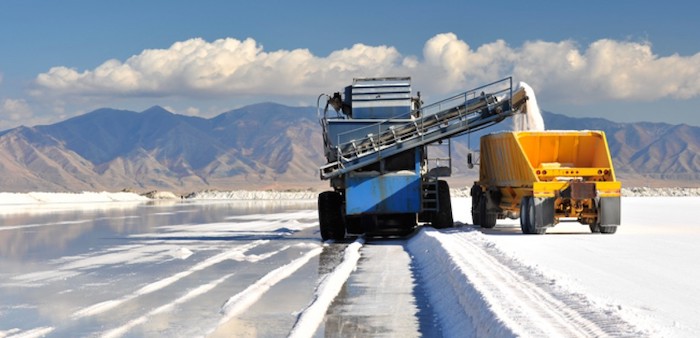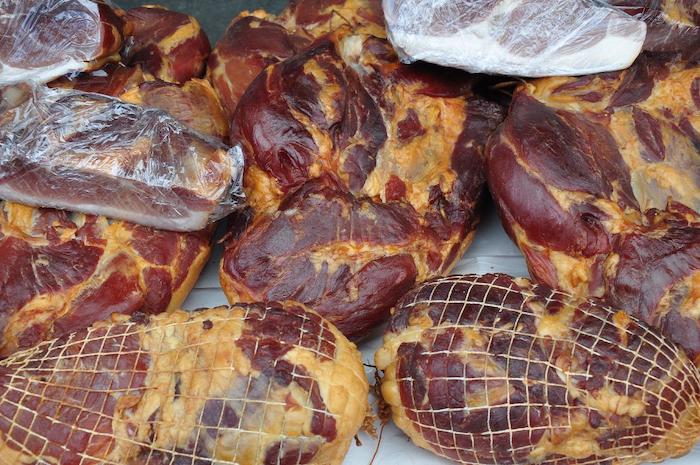When it comes to long-term preparation, salt often flies under the radar, but it's an incredibly vital component to have on hand. For thousands of years, humans have relied on salt for everything from food preservation to hydration. Yet, it's not something you can easily come by or create on your own, so if disaster strikes, you'll likely be stuck with whatever you already have stored.
In regions not naturally abundant in salt, acquiring it can be quite challenging. Even historical figures like Lewis and Clark had to set up a salt camp in Oregon to boil seawater for extraction. While they weren't aware of salt's nutritional necessity at the time, they needed it for seasoning and preserving meat. Today, you can still visit the Lewis and Clark Salt Works, a testament to their efforts.
For more information on essential food items to stockpile, check out this guide.
On a more imaginative note, the post-apocalyptic TV series *Jericho* features a salt mine as a crucial resource in the aftermath of a nuclear war. The town's dependence on this mineral highlights its importance in maintaining basic survival.
Throughout history, civilizations have risen and fallen based on their access to salt. Wars have been waged over this seemingly mundane substance, and it was once so valuable that it served as a form of currency. The word "salary" itself is derived from the Latin term for salt. The Romans even constructed roads specifically to transport it. Contrary to popular belief, Roman soldiers weren’t paid in salt, but American soldiers did receive salt brine during the War of 1812.
Ben Falk, author of *The Resilient Farm and Homestead*, suggests storing salt alongside other commodities like seaweed and blue-green algae. He notes that many of these resources are sourced from limited areas worldwide and are more accessible now than they ever have been.
### Summary:
- Salt can be harvested through solar evaporation or mining.
- A lack of sodium can lead to nausea, fatigue, irritability, muscle cramps, and even coma if severe.
- Beyond diet, salt is used for preserving food, tanning hides, disinfecting wounds, melting ice, killing weeds, and cleaning.
- Good options for storage include kosher salt, pickling salt, iodized table salt, and curing salt.
- Salt has an indefinite shelf life as long as it remains dry.

### Natural Sources of Salt
Salt is a common resource in certain parts of the world. Here are the primary methods of commercial extraction:
- **Solar Evaporation:** The oldest method, where saltwater is collected in shallow ponds and left to evaporate naturally.
- **Rock Salt Mining:** Retrieving salt from underground deposits, known as halite. The U.S. produces over 5 million tons annually, primarily in Ohio.
- **Vacuum Evaporation:** A mechanized process where saltwater is heated in large vacuum pans.
### Consequences of Low Sodium Levels
A deficiency in sodium, known as hyponatremia, presents several symptoms:
- Nausea
- Vomiting
- Confusion
- Fatigue
- Restlessness
- Irritability
- Muscle weakness and spasms
- Seizures
- Coma
If you're stranded in the wild without salt, your best natural sources are roots like dandelions and wild animals, particularly blood and organ meats.
For more insights into managing hyponatremia and other survival skills, consider enrolling in our online course.
### Versatile Uses of Salt
- **Dietary Need:** Salt is an essential electrolyte lost during intense physical activity. Sports drinks like Gatorade essentially replace lost salts and sugars.
[Watch: Idiocracy - Brawndo Has What Plants Crave!]
- **Food Preservation:** One of the most practical applications of salt is preserving food. It draws moisture from vegetables and meat, preventing microbial growth and extending shelf life. From canning to curing, salt is indispensable.

For example, you can ferment cabbage into sauerkraut by mixing it with salt and letting it sit. This can last for months without refrigeration.
- **Animal Hide Preservation:** Hunting yields more value if you preserve the hide. Whether using special chemicals, alum, or wood ash, salt is always involved.
- **Medical Uses:** Saltwater can soothe sore throats, flush sinuses, and clean wounds effectively.
- **De-Icing:** A sprinkle of salt on icy paths can make walking safer.
- **Weed Control:** Salt serves as an eco-friendly herbicide. Mixing vinegar, salt, and dish soap in a spray bottle can eliminate unwanted vegetation.
- **Cleaning:** Coarse salt acts as a powerful abrasive for cleaning cast iron pans.
### Recommended Salts for Your Pantry
The salt aisle has evolved beyond plain old table salt. Here are some of my top picks:
- **Kosher Salt:** My favorite kitchen staple, kosher salt is coarse and easy to measure. It’s great for cooking, fermenting, de-icing, and even cleaning. It’s also very affordable. Just avoid brands with anti-caking agents if you plan to can or pickle.
- **Pickling Salt:** Fine-grained and additive-free, this is ideal for canning and pickling. Store it in airtight containers to prevent clumping.
- **Himalayan Salt:** Known for its pink hue and minimal processing, Himalayan salt is trendy but lacks proven health benefits over regular salt. Still, it adds visual appeal and a touch of extra minerals.
- **Iodized Table Salt:** Standard table salt enriched with iodine prevents deficiencies linked to goiters and cognitive issues. I prefer it only for emergencies due to its taste.
- **Curing Salt:** Used for preserving meat, curing salts contain nitrites and other preservatives. I keep some on hand but haven’t experimented much with this yet.
For finer salt, you can grind it in a food processor.
### Storing Salt
Salt is one of the easiest items to store. It doesn’t expire, pests ignore it, and sunlight doesn’t affect it. The main threat is moisture, but even then, it usually takes significant exposure to cause problems. Pickling salt clumps easily, so transfer it to an airtight container after opening. I keep mine in its original box, stored in a high, dry location away from basements or flood-prone areas.
While some people store salt in mylar bags with oxygen absorbers, it’s unnecessary. Number 10 cans are another option, but most people don’t need this level of precaution.
BBQ Grill
A
BBQ grill is a cooking appliance used for outdoor cooking, specifically
for grilling food over an open flame or hot coals. It typically
consists of a metal grate or griddle that is placed over a heat source,
such as charcoal or propane gas. The grill can be used to cook a variety
of foods, including meats, vegetables, and seafood. BBQ grills come in
different sizes and styles, including portable models for camping or
tailgating, and larger models for backyard entertaining. Some BBQ grills
also include additional features such as side burners, rotisserie
attachments, and temperature gauges.
Bbq Grill ,Home Depot Grill,Outdoor Bbq Grill ,Portable Bbq Grill
NingBo AoYue Technology Co., Ltd. , https://www.aoyue-tech.com